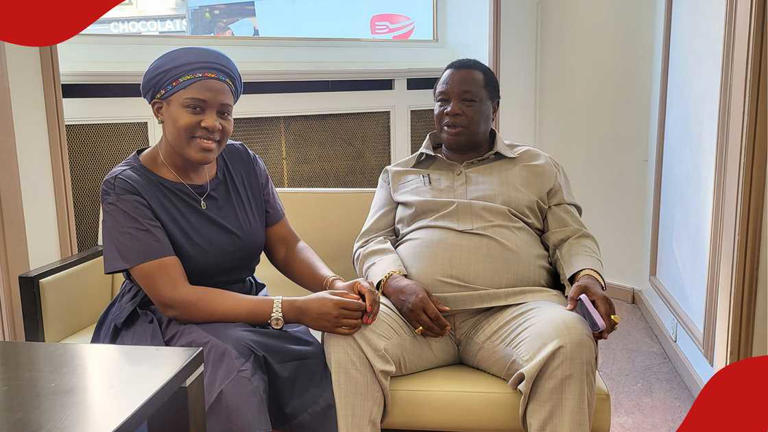
Ahead of the March 11 governorship and state assemblies’ elections, the national leadership of the Labour Party (LP) says it has not formed an alliance with any political party.
LP National Chairman, Julius Abure in a statement on Tuesday, urged “millions of the electorate who believe in LP presidential candidate, Mr Peter Obi” also known as ‘Obidients’ to vote the party’s candidates in Saturday’s governorship and state assemblies’ polls.
Abure said the Labour Party is leaving nothing to chance in ensuring that its candidates not only participate, but win at the ballot.
“This call becomes necessary given reports from some political opportunists from other political platforms, claiming that they have reached an agreement with Obidients and LP supporters to cast their ballots for them in this Saturday’s polls,” he stated.
“We want to state categorically and unequivocally that the national secretariat of LP has not given any instructions for any chapter of the party to liaise or support any candidate except LP candidates in this Saturday’s polls.
“Our members should not only go out and vote, but follow the process to a conclusive end as provided by the Law.
“We encourage millions of the electorate who believe in LP presidential candidate, Mr Peter Obi and the philosophy of the party not to be deterred, but troop out en masse and vote for all LP candidates anywhere in the country. The LP is not in any alliance with any political party in the run-up to this Saturday’s polls.”
The Labour Party, now adjudged as the third force, has fielded candidates in the governorship elections to hold in 28 states on Saturday. The party also has candidates for the 36 state assemblies. The LP also seems to be gradually making inroads into mainstream politics as the party got six Senate and 34 House of Representatives seats in the February 25 National Assembly (NASS) elections of February 25 poll.
Back Story
The All Progressives Congress (APC) candidate, Bola Tinubu polled 8,794,726 and was declared President-Elect 4am Wednesday by the Independent National Electoral Commission (INEC).
The former Lagos State governor came out tops in 12 of Nigeria’s 36 states, and secured significant numbers in several other states to claim the highest number of votes — 8,794,726, almost two million votes more than his closest rival — former Vice President Atiku Abubakar of the Peoples Democratic Party (PDP).
Atiku, 76, who has now run for president six times, got 6,984,520 votes, while Obi, who, in less than a year, galvanised young voters in a manner some have described as unprecedented finished the race with 6,101,533.
By his victory, APC’s President Muhammadu Buhari will hand over to his partyman, Tinubu after the expiration of his eight-year two-term on May 29, 2023.
Criticism, Calls For Poll Cancellation
The announcement of the results would not have happened if other candidates had their way.
Right from the election on Saturday, opposition parties had complained bitterly that INEC officials at the polling units were unable to upload election results electronically to the commission’s Results Viewing Portal (IReV), as stipulated by Section 60 of the Electoral Act 2022.
The IReV and the Bimodal Voter Accreditation System (BVAS) are new technologies introduced by the electoral body for the accreditation and electronic transmission of votes for this year’s polls.
The leadership of the PDP and LP at several press briefings from Saturday to Tuesday had called on INEC and protested the manual transmission of results.
The parties said the results by INEC showed “monumental disparities” between what the party agents signed and what INEC officials announced in Abuja and asked Mahmood to respect the upload of results electronically as stipulated by recommended by the law.
They said the manual transmission of results compromised the integrity of the election process and demanded a cancellation of the election and asked the electoral chief to step down. They said the results announced by INEC were “irretrievably compromised”.
Opposition party agents had staged a walkout from the national collation centre in Abuja on Monday after the INEC chief insisted that the process must continue despite that all results were not electronically transmitted.
At a previous press conference on Tuesday, LP national chair said, “This election is not free and far from being fair”.
Similarly, former President Olusegun Obasanjo as well as leaders in the West African sub-region led by former Nigerian President, Goodluck Jonathan; ex-Ghanaian President John Mahama had before the declaration of results called on INEC to comply with the provisions of the Electoral Act 2022 on the collation of results for the presidential and National Assembly elections held on February 25, 2023.
However, INEC chairman, Mahmood Yakubu declared Tinubu as Nigeria’s President-Elect and handed him his Certificate of Return.
“We will explore all legal and peaceful option to reclaim our mandate. We won the election and we will prove it to Nigerians,” Obi subsequently said at a press conference on Thursday in Abuja.
(TNT)








